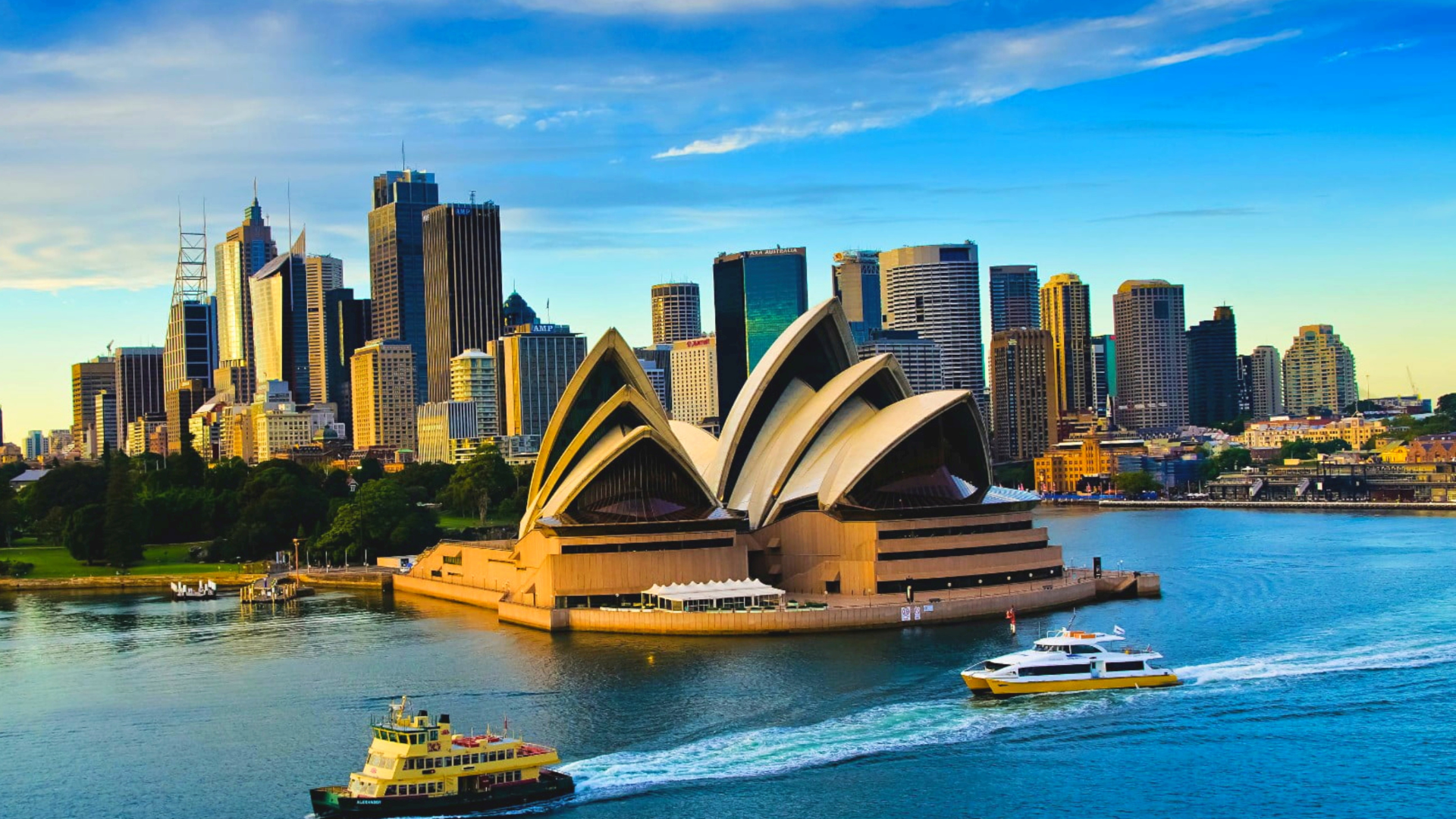Since Donald Trump assumed office as President in January 2025, the travel landscape has experienced significant shifts influenced by new policies and executive actions. These changes, both domestic and international, are reshaping how people travel, the hurdles they encounter and the opportunities available to businesses and travelers alike. Here, we delve into the major ways travel is expected to evolve under this administration.
Reinstatement of Travel Bans

One of the administration’s earliest moves has been the reinstatement of a travel ban targeting individuals from several countries, predominantly in the Middle East and Africa. While framed as a measure to enhance national security, this policy has drawn widespread criticism for its potential to limit mobility, disrupt families and deter business collaborations. For example, a report from the International Air Transport Association noted a 20% drop in flight bookings from the affected regions within the first month of the ban’s reinstatement. Additionally, stories of families being separated at airports or denied boarding have surfaced, painting a sad picture of the human struggles behind these policies.
For many travelers, the uncertainty surrounding visa approvals and potential detainments at airports has created a feeling of anxiety. International airlines and tourism boards are already reporting declines in travel bookings from affected regions, raising concerns about long-term economic impacts on global travel networks.
Stricter Visa Policies

The administration’s commitment to enhanced screening processes has introduced stricter visa requirements for many travelers. Business travelers, students and tourists alike are finding themselves subject to longer waiting times, additional documentation and more in-depth interviews. These changes are intended to tighten security but have unintentionally led to frustration and confusion among international travelers. For example, students from countries like India and China, who make up a significant proportion of international enrollment at U.S. universities, are experiencing prolonged visa delays, causing them to miss critical academic deadlines. Similarly, business professionals attending conferences or pursuing high-stakes deals often face unexpected denials or months-long wait times for visa approvals, hindering international collaboration and economic growth. Families planning vacations and students aiming to study in the U.S. now face significant hurdles, while U.S. businesses are reliant on international clients and talent and face economical challenges as well. This shift in policy underscores the growing tension between safety and accessibility in travel.
Trade Disputes Impacting Travel

Recent trade disagreements, such as the tariff threats with Colombia over deportation policies, highlight how geopolitical tensions can ripple into the travel industry. For instance, the U.S.-China trade war under previous administration resulted in reduced travel between the two countries, as higher tariffs dampened economic ties and business-related travel. Similarly, the 2019 Boeing-Airbus tariff dispute between the U.S. and the EU led to increased airfare costs on transatlantic routes, affecting both leisure and corporate travelers. These examples highlight how deeply intertwined trade policies and the travel sector are, with each conflict adding layers of complexity for airlines, tourism birds and global travelers.
When tariffs or sanctions are imposed, the resulting economic strain often discourages travel between the affected countries. For instance, Colombian exports and U.S. tourism business dependent on Latin American travelers may feel the immediate pinch. These disputes serve as a reminder of how interconnected trade and travel are, emphasizing the need for stability in international relations to sustain the flow of people and goods.
Changes to Refugee and Asylum Policies
The suspension of the refugee resettlement program and the reinstatement of the “Remain in Mexico” policy for asylum seekers have significant implications for migration-related travel. Refugees who were previously cleared to resettle in the U.S. now find themselves in limbo, while asylum seekers are required to wait in Mexico for their cases to be processed. Beyond the humanitarian consequences, these changes are creating logistical challenges for international agencies, border towns and legal advocates working to address these policies. For border regions, the strain on infrastructure and resources is palpable, with ripple effects and local economies and cross-border tourism.
Domestic Air Travel: Enhanced Security Measures

Domestic travelers are also feeling the impact of heightened security protocols. New measures include additional screenings, biometric identification systems and stricter carry-on regulations at airports nationwide. While these actions aim to prevent potential threats, they have introduced new frustrations for passengers, from longer security lines to increased travel times. Airports are investing in updated technologies and staffing to manage these changes, but the adjustment period has proven challenging for travelers seeking a smooth experience. These evolving security measures may pave the way for innovation, such as touchless systems and AI-driven screening, but the transition period is testing patience.
Romania Joins the Visa Waiver Program
Despite the shifting visa policies under the Trump administration, Romania has officially been admitted into the U.S. Visa Waiver Program (VWP). Beginning in March 2025, Romanian citizens will be able to travel to the United States for tourism or business without a visa for stays of up to 90 days. This marks a significant milestone for Romanian travelers and enhances economic and cultural exchanges between the two nations. The designation was granted after Romania met strict security and information-sharing requirements and, so far, there have been no indications from the Trump administration that this policy will be reversed. Romania is the 43rd country to join the program and the fourth added under President Joe Biden after Croatia, Israel and Qatar.
Environmental Policy Rollback and Sustainable Tourism

The administration’s decision to withdraw from international climate agreements and roll back environmental regulations has sparked concerns in the travel and tourism sector. Destinations that have built their reputations on sustainability and eco-tourism may face challenges in maintaining their appeal as environmental protections weaken. For instance, tropical hotspots like Costa Rica and the Maldives, known for their eco-conscious tourism models, may struggle to adapt to increased pollution and rising sea levels without robust international climate agreements. Similarly, industries such as wildlife tourism and green hospitality are particularly vulnerable, as changes in environmental policy could lead to reduced biodiversity and diminished natural attractions, affecting both the visitor experience and local economies reliant on sustainable tourism. National parks and natural landmarks, often central to eco-tourism, could see reduced funding and oversight, impacting their preservation efforts. However, this could also galvanize travelers and organizations to double down on private sustainability initiatives, creating a new wave of eco-conscious tourism driven by grassroots movements.
Corporate Travel Adjustments

The uncertainty surrounding international relations, visa policies and trade agreements has led corporations to reconsider their travel strategies. Many businesses are opting for virtual meetings, which grew popular during the pandemic and reducing non-essential travel. While this reduces costs and streamlines operations, it also impacts airlines and hotels heavily reliant on business travelers. On the flip side, this shift has created demand for high-tech conference tools and hybrid event solutions, opening new opportunities for innovation in the business travel sector.
Expanding Domestic Tourism Opportunities
On a more positive note, domestic tourism is likely to see a boost as Americans opt to explore closer to home amidst international travel uncertainties. The administration’s focus on “America First” policies includes promoting domestic destinations and investing in national parks and infrastructure projects that support local tourism. From scenic road trips along the coasts to culturally rich experiences in smaller towns, domestic travel could experience a renaissance, encouraging Americans to rediscover the beauty and diversity of their own country. Destinations like Route 66, the Blue Ridge Parkway and iconic landmarks such as Yellowstone and Mount Rushmore are likely to see an increased footprint. Additionally, initiatives such as the National Park Service’s revitalization projects and local tourism campaigns highlighting hidden gems like historic small towns and artisanal food trails are making domestic exploration more appealing and accessible than ever before. This shift not only supports local economies but also offers travelers a chance to connect with communities and heritage in a more meaningful way.
Increased Legal Challenges and Their Implications
Many of the administration’s travel-related policies have faced legal challenges, creating uncertainty for travelers and businesses alike. High-profile court cases surrounding the reinstated travel ban and refugee policies highlight the judiciary’s critical role in shaping the travel landscape. For travelers, these ongoing legal battles add a layer of unpredictability, with policies sometimes changing abruptly based on court rulings. This evolving legal environment underscores the need for clear communication and reliable resources to help individuals and companies navigate these charges.
The Future of International Travel Relations

As global reactions to these policies unfold, the travel industry is bracing for potential diplomatic and economic fallout. Partnerships with international airlines, tourism boards and foreign governments will play a critical role in navigating these changes and ensuring that travel remains accessible and secure. Countries affected by bans and trade disputes may introduce reciprocal measures, further complicating global travel networks. However, this also presents an opportunity for diplomatic efforts to rebuild trust and create new frameworks for cooperation.
The Trump administration’s return to office has ushered in a new stage for travel, marked by heightened security, stricter immigration policies and shifting international relations.
While these measures aim to bolster national interests, their impact on the travel industry is far-reaching, touching everything from leisure tourism to corporate mobility.
For travelers, adaptability will be key and for the industry, innovation and collaboration will be vital in overcoming challenges and seizing new opportunities.
The road ahead may be complex, but it’s also an invitation to redefine how we navigate the world.







